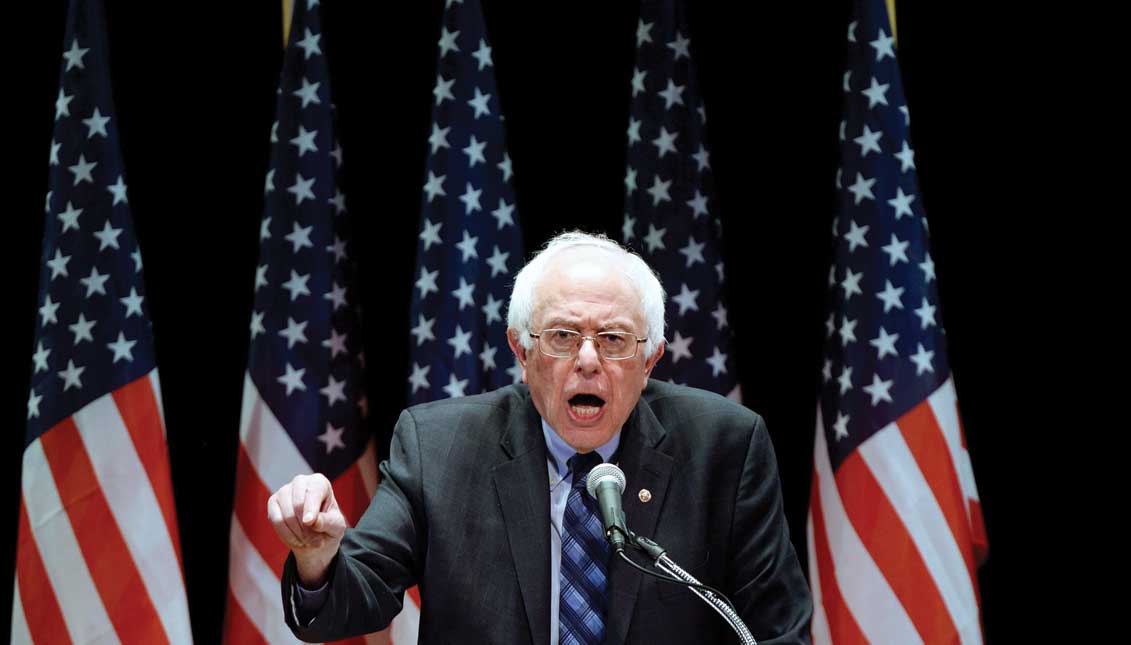
Is a Latino popular revolution coming?
The recent whirlwind of primary elections has shown that the resurgence of the Latino force in the vote and in political representation could bring with it an…
Is the United States ready for a social revolution?
At the beginning of the year, and after President Trump's State of the Union address, independent Senator Bernie Sanders anticipated a political revolution "indoors," driven, in part, by the country's deep economic inequalities, with a fire that has been fueled by the White House’s erratic behavior.
"In an unprecedented way, we are witnessing a revitalization of American democracy with more and more people standing up and fighting back," the senator said. Since then, primary elections across the country have shown that he was right.
"They have the money, an unlimited amount of money. But we have the people, and when ordinary people stand up and fight for justice, there is nothing that we cannot accomplish," concluded Sanders, coining a phrase that would repeat itself during the year in campaigns like Alexandria Ocasio –Cortez’s in New York and that of Ilhan Omar in Minnesota.
The dream of a truly liberal United States has been cemented for years, but its definitive germination could now come from the hand of an immigrant population - mostly Latino - that has been radically transformed over recent decades.
The demographic statistics of the nation show that the rate of citizens of Hispanic origin born in the U.S. is beginning to surpass that of foreign Latinos at a time when the second generation of immigrants begins to take control of the country.
We are no longer talking about immigrants who sacrifice their lives for precarious wages and few (or no) rights, but about children raised with the sweat on their parents' foreheads and who managed to gain access to college education, while perceiving at the same time the profound socio-economic differences and opportunities between their families and those of their white peers.
RELATED CONTENT
This is what Reihan Salam calls "a popular revolution" in its infancy.
In his column for The Atlantic, Salam reflects on the social exasperation that is brewing among Latino millennials in the country, who have the academic training and the migratory facilities to pay attention to the political reality — and feel annoyed by it.
"Just as Donald Trump appeals to the ethnic self-interest of rural whites, a tribune of working-class Latinos could call attention to the dearth of Latinos at the uppermost echelons of American society and promise to do something drastic about it, such as redistributing the inherited wealth of privileged whites,” explains Salam.
And it’s that the Trump era, instead of crushing the immigrant will with measures such as its "zero-tolerance policy," has brought to light the importance of minorities and diversity in the range of political possibilities that the former “underdogs” now have.
Women's power, reproductive rights, gender equality, marriage equality, and the needs of communities of color (such as universal healthcare or tuition-free education) are now slogans of political campaigns in all corners of the country, when in another moment of American politics they would have been political suicide.
Perhaps Bernie Sanders lost the battle in the campaign for the presidency, but it seems that the war will be defined by the principles coined during his speeches and that are now being embraced by an immigrant, colorful and documented community who is tired of being taken for granted by both parties.











LEAVE A COMMENT: